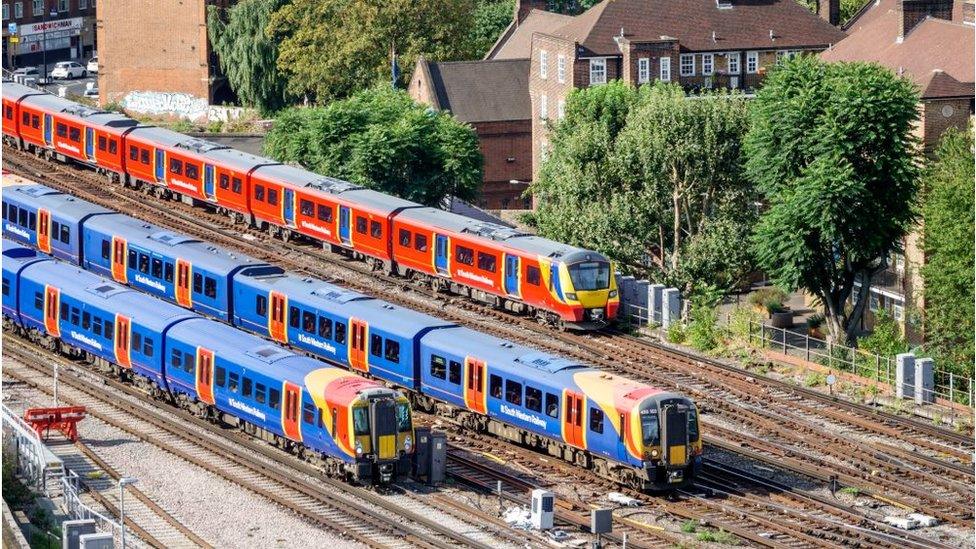Rail law proposal 'amounts to draconian strike ban'
- Published

The government has set out plans for a new law which aims to reduce disruption to passengers caused by rail strikes.
Under the legislation, minimum services would have to be provided during walkouts by railway workers, with the threat of financial penalties.
The RMT union called the proposed law "a draconian measure which amounts to an attempt to ban transport workers from going on strike."
The move was announced amid RMT strikes on South Western Railway services.
Under the new law, which was outlined in the Queen's Speech on Thursday, any strike would be unlawful unless a "minimum service agreement" is in place.
If the agreement is not honoured, the strike would be unlawful and damages would be sought against unions.
The government said the aim of the legislation was to reduce disruption caused to passengers during rail strikes, while preserving workers' right to take industrial action.
The move would also allow railway companies to plan services more effectively, well in advance of any action, the government said.
"We will consult on how best to implement this in a proportionate way, including ensuring that sanctions are not directed at individual workers, and how this would interact with the wider industrial relations framework," the government said.
'Strike ban'
The move was announced as members of the Rail, Maritime and Transport union (RMT) on South Western Railway (SWR) took their 17th day of strike action since the start of the month, in a dispute over the role of guards on trains.
A total of 27 days of strikes will have been held by New Year's Day.
RMT General Secretary Mick Cash said: "Taking industrial action is a basic human right and denying workers the ability to withdraw their labour has been the hallmark of hard right, authoritarian regimes."
An RMT spokesman said the union understood a minimum service would be set down in law, effectively banning all-out rail strikes.
"[The government] are saying 'you have to run a service' - they will drag our workers [to work] with chains if needs be," he said, adding that damages for non-compliance "could bankrupt" unions.
South Western Railway services were running during the strike, he added, because 250 "managers and back office staff" had been drafted in as continuity guards.
Airline move
The government also confirmed plans for new insolvency legislation for airlines, first set out in previous Queen's Speech in October.
It will be designed to protect passengers in situations such as the recent collapse of Thomas Cook, and will include the introduction of a "special administration regime", allowing an airline's fleet to continue flying while passengers are repatriated.
It would also ensure that the Civil Aviation Authority has a duty to repatriate passengers who have not bought ATOL-protected holidays or flights, as well as those that are ATOL-protected.
- Published19 December 2019
- Published2 December 2019
- Published25 November 2019